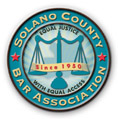Frequently Asked Questions - Criminal Law
Experienced Solano County Criminal Defense Attorneys
What should I do if I am arrested?
If you are approached by the police or arrested for a criminal offense, you should not make any statements to the police and should not talk to anyone about the case. You have the constitutional right to remain silent, and you should exercise that right at all times. You may be familiar with the warning (sometimes called the Miranda warning) that 'anything you say can and will be used against you' - well, it's true. Despite the fact that many clients are familiar with this advice - it is surprising how frequently they ignore it!
Even if you are innocent, anything you say can be taken out of context or misinterpreted, or could supply proof of some element of the alleged offense that would otherwise be difficult for the prosecution to prove.
If you are arrested, you can bail out in most cases. The amount of bail varies depending on the severity of the offense. You should contact a bail bonds person. You typically will have to pay about 10% of the total bail amount to obtain a bail bond. Most bail bonds people will work with you regarding the fee and will agree to a payment schedule.
What rights do I have if I am arrested?
Persons charged with criminal offenses have a number of constitutional rights. These include the right to an attorney and the right to remain silent. You should in all cases exercise your right to remain silent and should not give any statements to the police. You have a right to an attorney at all stages of the proceedings. If you cannot afford an attorney and if you meet the indigency requirements, the court will appoint an attorney to represent you.
You also have the right to due process and a fair trial. These rights include the right to notice and an opportunity to be heard. You must be provided with police reports and other evidence which the State intends to use against you, and you have the right to confront witnesses and evidence against you, which is usually done through cross-examination of witnesses.
You also have the right to a jury trial in which 12 jurors must unanimously agree that you are guilty beyond a reasonable doubt.
What is the typical procedure in a criminal case?
Every case begins with an arraignment in which a plea of not guilty is usually entered, and the issue of the defendant s custody status is discussed, i.e., the amount of bail, whether bail can be reduced, and whether the defendant can be released from custody on his or her own recognizance pending resolution of the case or trial. Usually, the criminal complaint and the police reports regarding the alleged offense are provided to the defendant s attorney at the arraignment hearing.
After the arraignment, there are further court hearings, called pre-trial conferences, if the alleged offense is a misdemeanor, or readiness conferences, if the alleged offense is a felony. The purpose of the pre-trial conference or readiness conference is to attempt to negotiate a plea bargain, dismissal, or other resolution of the case. Everything is subject to negotiation. Negotiations could result in some charges being dismissed in exchange for a plea to other charges, or reduction of a felony to a misdemeanor, or an agreement that a certain offense be reduced to a less serious offense. Negotiations often result in an agreement as to the sentence a defendant will receive if he or she pleads to a certain offense.
If you are charged with a felony, you have the right to a preliminary hearing, in which the District Attorney must show that there is probable cause to believe you committed the charged offense. You have the right to have the preliminary hearing within ten court days of your arraignment.
If the case does not resolve because the defendant and the District Attorney cannot agree on an appropriate resolution, then the case will proceed to trial. You have the right to a jury trial in which the District Attorney has to prove the alleged charges against you. You have the right to present witnesses and evidence on your own behalf at the trial, and the right to confront and cross-examine witnesses against you. You can only be found guilty if the jury unanimously agrees that the District Attorney has proven the case against you beyond a reasonable doubt.
Are there alternatives to jail if I am arrested?
At the pre-trial stage, prior to any conviction, you can post bail, or ask the court to release you on your own recognizance (“OR”). The court will consider OR release, or a reduction in bail, based on factors such as the severity of the offense, your prior criminal record or lack thereof, and your ties to the community. If you cannot post bail and you are not released on OR, you will receive credit for any time that you serve in custody prior to being convicted of an offense and sentenced, against any sentence you ultimately receive.
If you are convicted of a crime, you may have to serve a jail sentence, but this is not always the case. There are alternatives to jail. For example, in some cases, you may be eligible for diversion or deferred entry of judgment, whereby you may have to take a class, such as a drug class or an anger-management case, depending on the type of offense with which you are charged, and thereafter, the case dismissed if are in compliance.
You may also be eligible for a sheriff’s work alternative program in lieu of any actual jail time. In Solano County, for example, the Sheriff runs an alternative sentencing program. There are fees associated with that program, and both the court and the Sheriff must approve you for that program, but if you qualify, you can work off a jail sentence through other means besides reporting to jail, such as by doing house arrest or community service work.
Contact our experienced Criminal Law Attorney today for a free initial consultation.
 Our
Our Criminal
Criminal Criminal
Criminal Family Law
Family Law Collaborative Law
Collaborative Law





